Bonjour lecteurs! Today, I am back to my old roots. Talking more specifically about being a bilingual family! Communication skills have such an impact on our day-to-day life. It is obviously the source of building relationships and so much more. Nowadays, more children start primary school with developmental language disorders. The recent interruptions in their education over the last three years have had a huge impact on pre-schoolers. If like me, you are in a bilingual household, it can even be trickier. Here are my 8 tips on How To Develop Communication Skills With Bilingual Children.
Use Your Native Language As Often As Possible
Many pieces of research showed that c’est important that the first language your child learns is your native language. It helps them recognise your voice when they are newborns and smoothly bond with you.
And later in life, they will naturally see the difference once you start introducing them to a new idiom. Start with basic words like ‘Mum’, ‘Dad’, ‘Bye’, and ‘Thank You’.
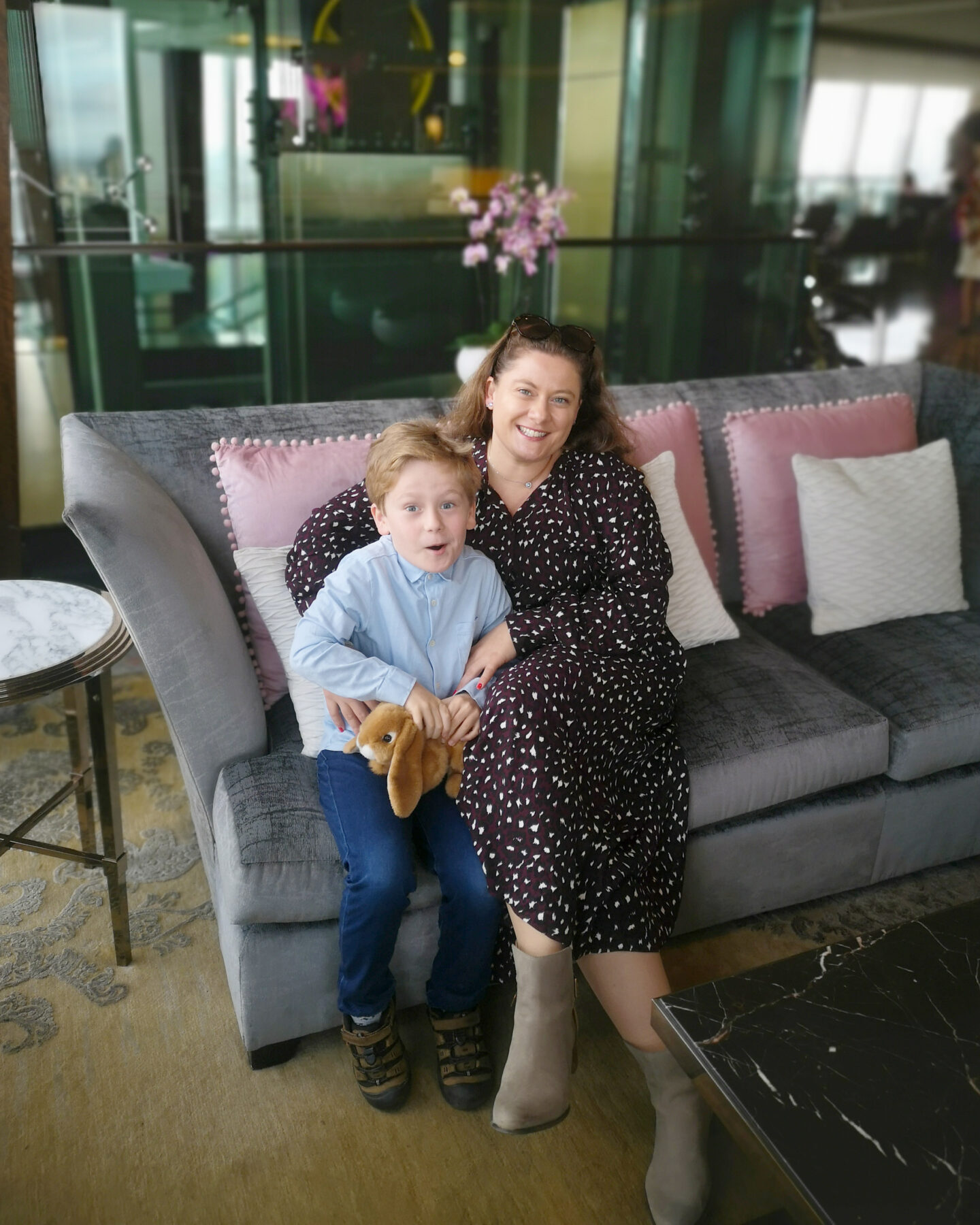
Talk to your children in your native language as often as possible. Why not join a mum group with other mamas from your country? Being surrounded by people talking in your language will make it like a natural setting for your child.
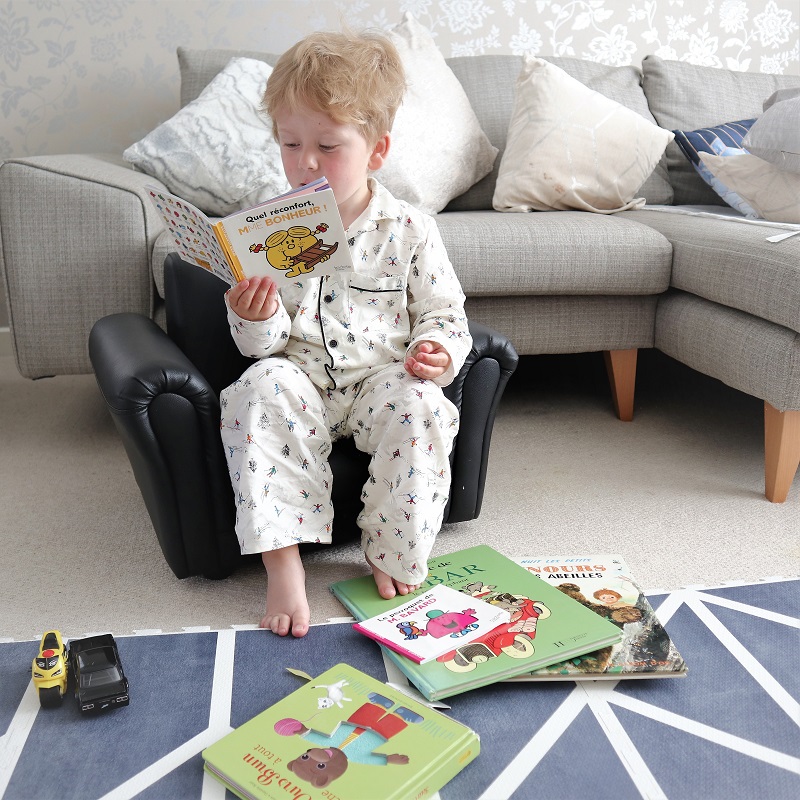
En plus, if you also speak English, they will naturally pick up words from both languages and it will enhance their communication skills without even thinking about it.
The Power Of Visuals
You can also use all sorts of visuals and aids to enhance children’s communication skills. Use blocks, toys, or even objects in your day-to-day life.
When Stanley was a baby, I would go for walk with him in his buggy and I would point out things we were coming across, telling him the word both in French and in English. Go even further, use all their 5 senses to attach what they experience to words.
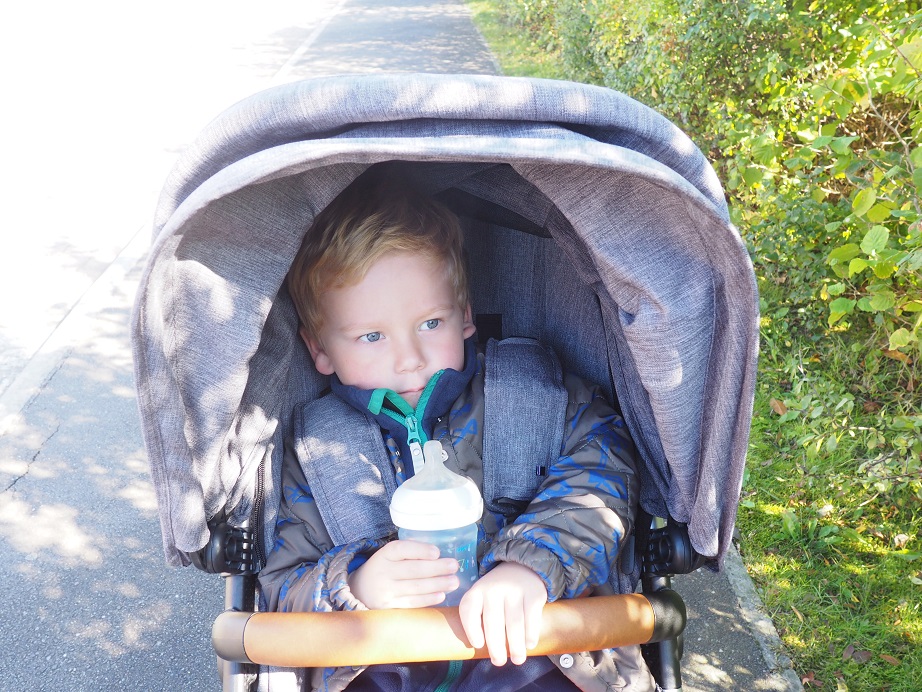
He also used to watch cartoons in French when he was a small toddler. At this age, their brain is like a sponge, and he was fascinated by them. He would then reproduce some words in French.
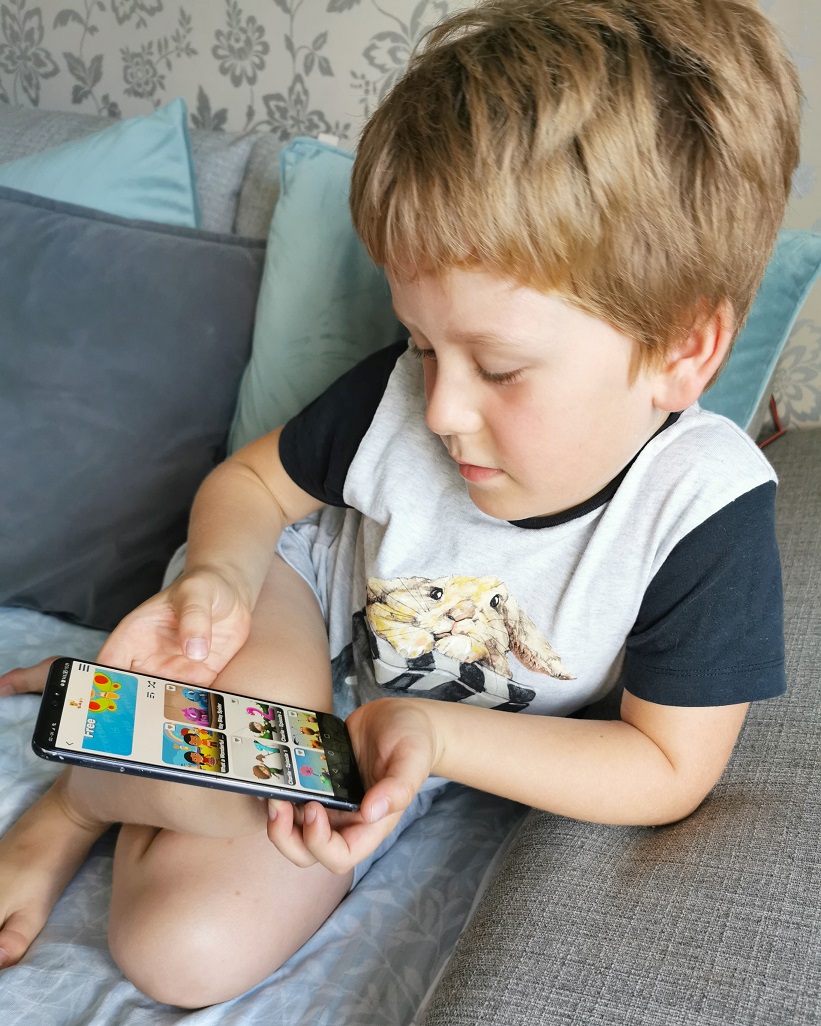
Build Their Basic Vocabulary Step by Step
Start with greetings and other basic social words such as ‘ how are you?’, ‘I’m good’, and ‘thank you’.
Then, move on to different topics such as food and drink words, body parts, colours, household items, and transports.
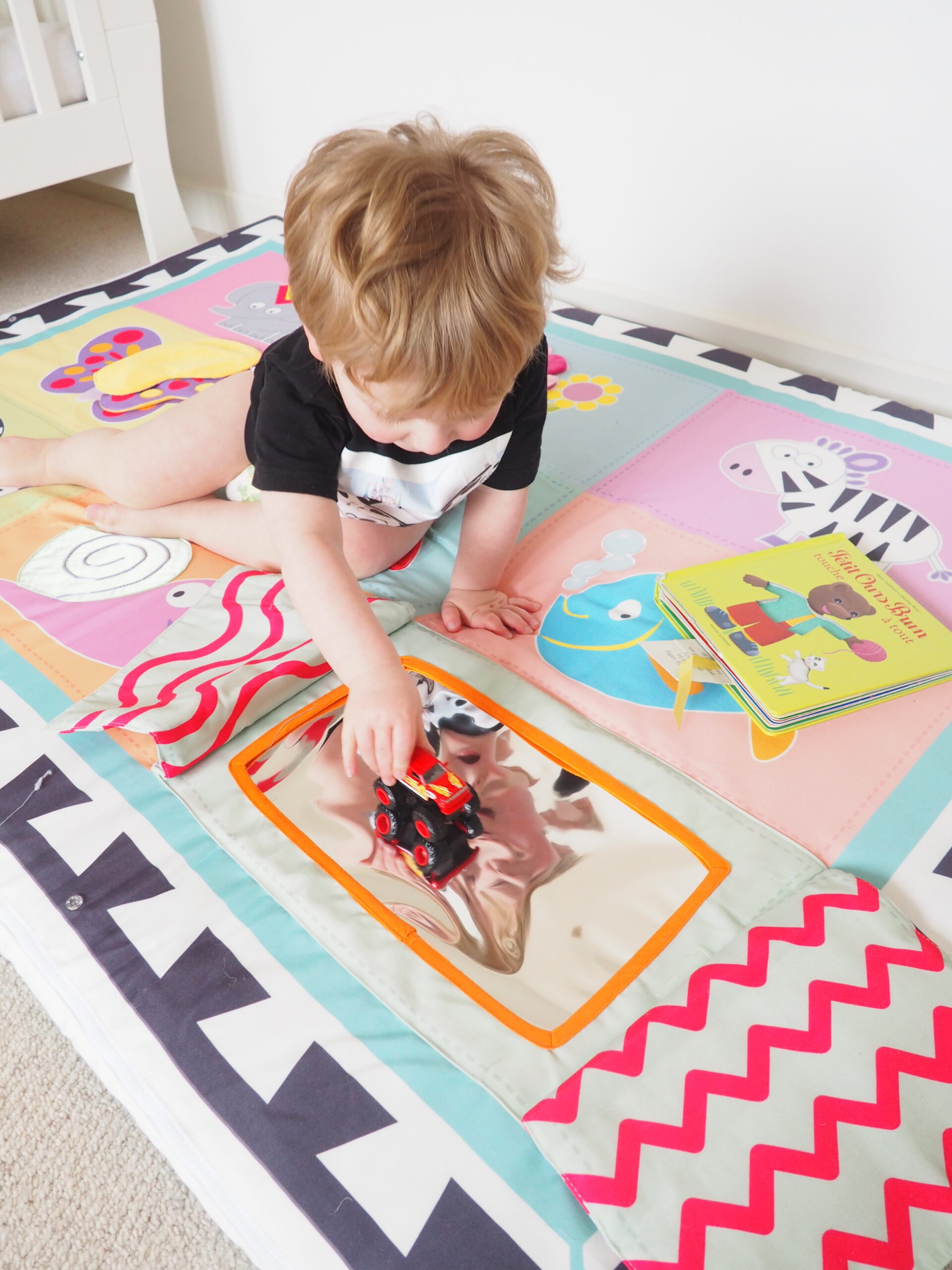
Action words are a good one to get started too before moving on to adjectives or opinions.
Model For Your Child
Little ones tend to mimic their parents. We are basically modeling for them, so make it playful.
Use sounds, and model syllables to your children. Par exemple, I would exaggerate the sounds of words with Stanley.
Sometimes, I would even be silly and produce noises to make it more fun.
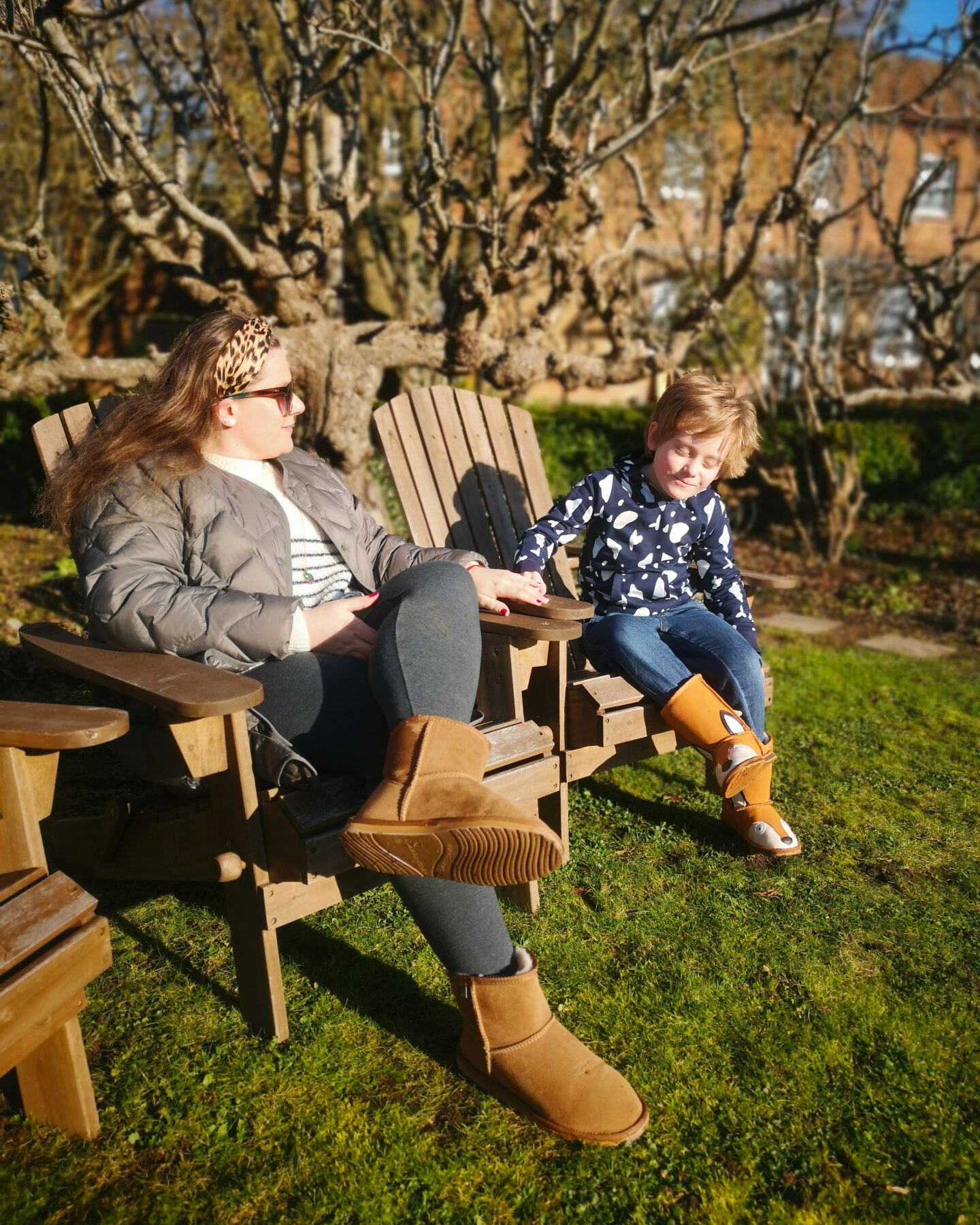
Therefore, there are some words he naturally uses in French straight away. Make it fun and silly, it always works! Babble and vocalises words.
My little one knows all the funny words in French such as ‘fart’, ‘poo’… You get l’idée! 😝
Use Music & Make It Playful
Music can be such a great way to develop vocabulary and communication skills.
That’s basically how nursery rhymes work. They converge a message, and they model well words and syllables to children.
Why not do the same in your own language? Adapt the English songs they learn at the nursery or pre-school and sing it at home in your native tongue.
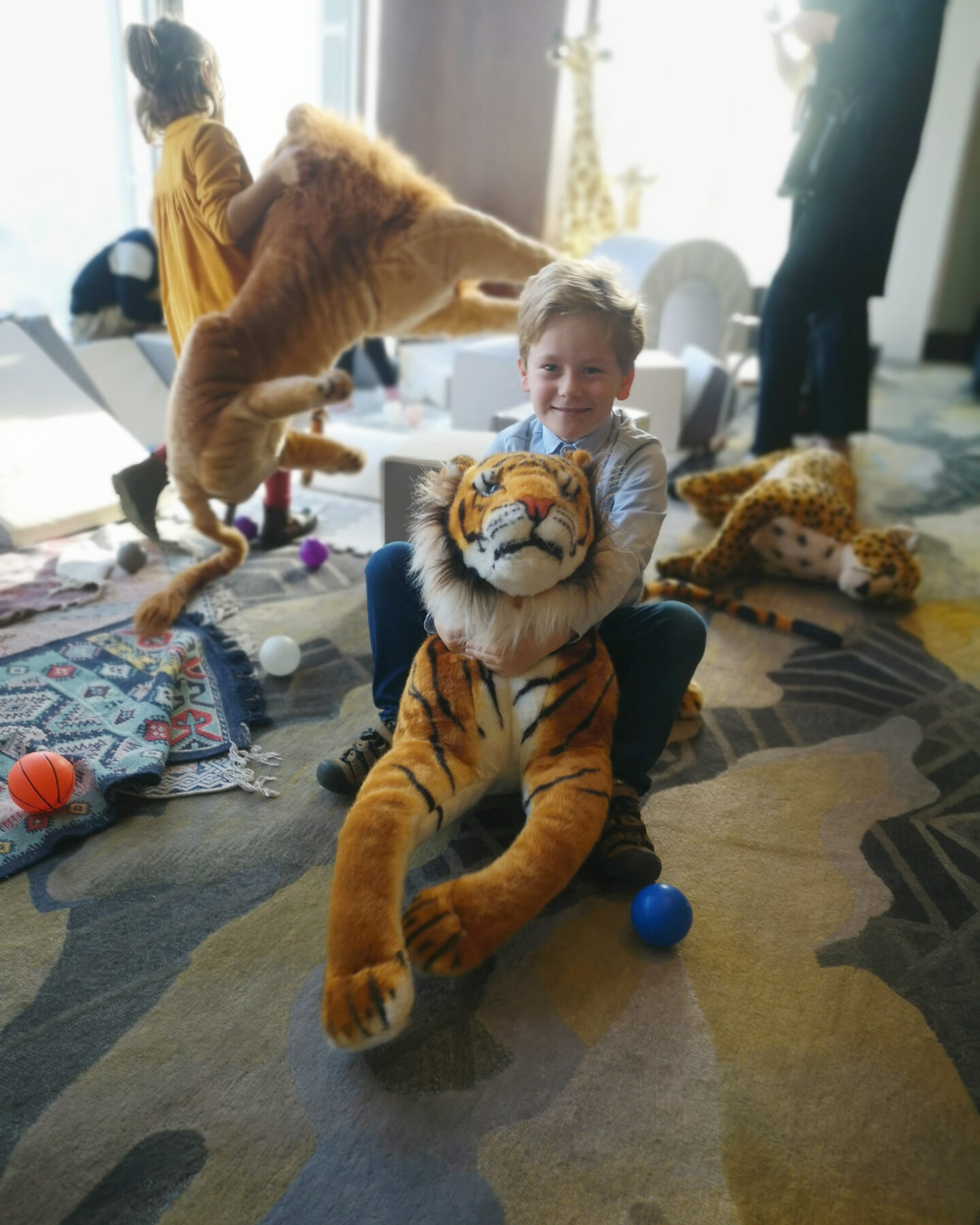
Or do role-plays with your children at home. Stanley still enjoys it. He would have fun pretending to be the postman or pretending to go to the shop. And when Nanny S comes over, they still both like playing school.
The Importance of Drilling Words & Expressions
To build your child’s language skills, it’s important to repeat words encore and encore.
The more modelling opportunities you have, the more confident they will become at reusing the words themselves.
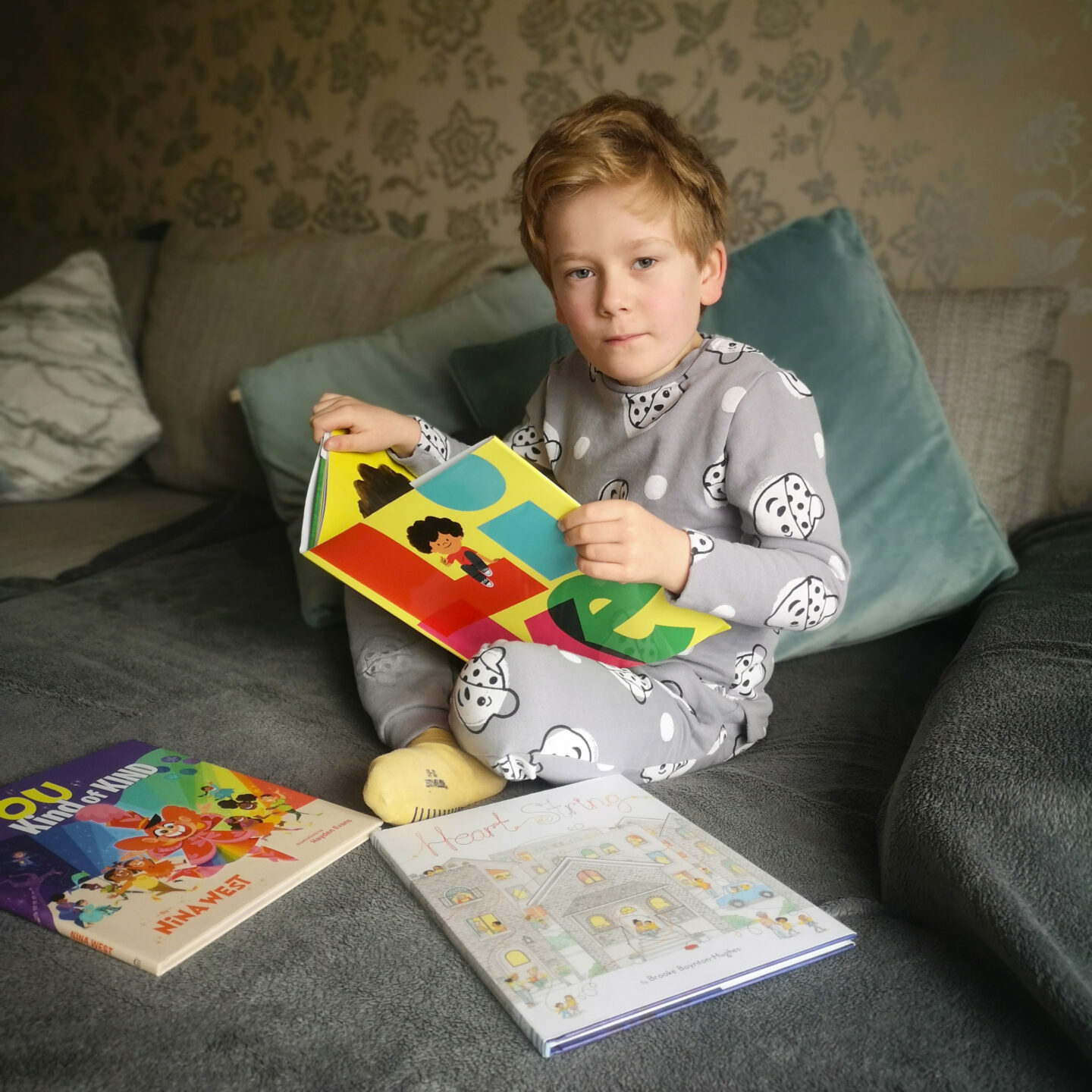
Teach them to understand words before they can say them with their correct meanings. Show them the items too. And use the language repetitively in the right context.
Read, Read, Read, Read, Read
I am sure you have heard this one so many times, but reading daily from a very young age can have such a great impact on children’s communication skills.
Not only it develops their speaking abilities, but also their writing and listening skills, as well their vocabulary.
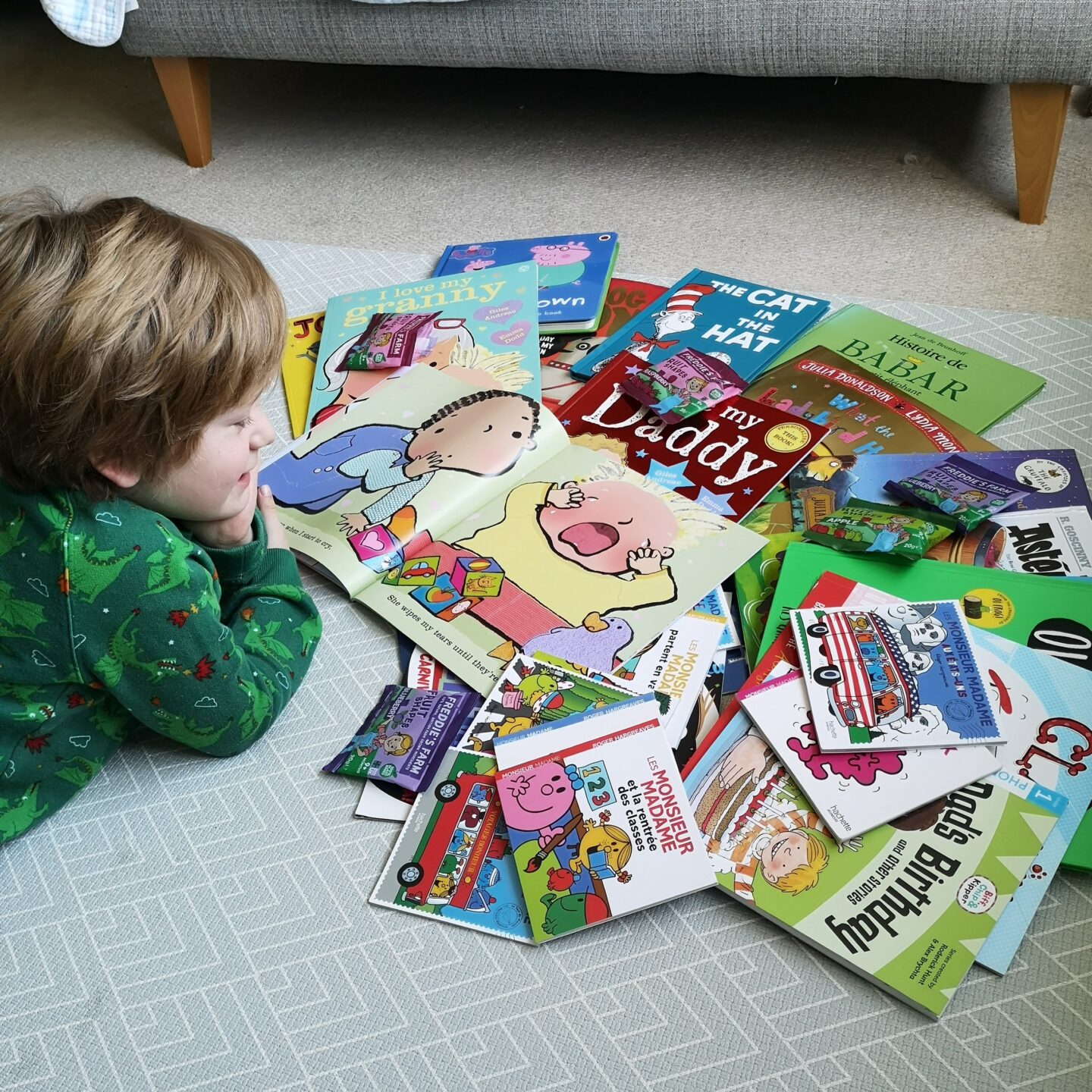
I have been reading to Stanley since he was a few weeks old and he has always been fascinated by stories. People keep telling me how great his vocabulary is for his age. En plus, he has a great imagination too. No doubt it is down to the time we spend reading.
And bedtime stories are such a lovely moment to bond with your child. Those memories are very precious to me. So much we now read a book (or two!) every morning while we have breakfast. It’s our morning tradition and I would not change it for anything!
Language Therapy
Lastly, if you have any doubts that your little one is behind with his communication skills, get it checked out with a certified speech and language professional.
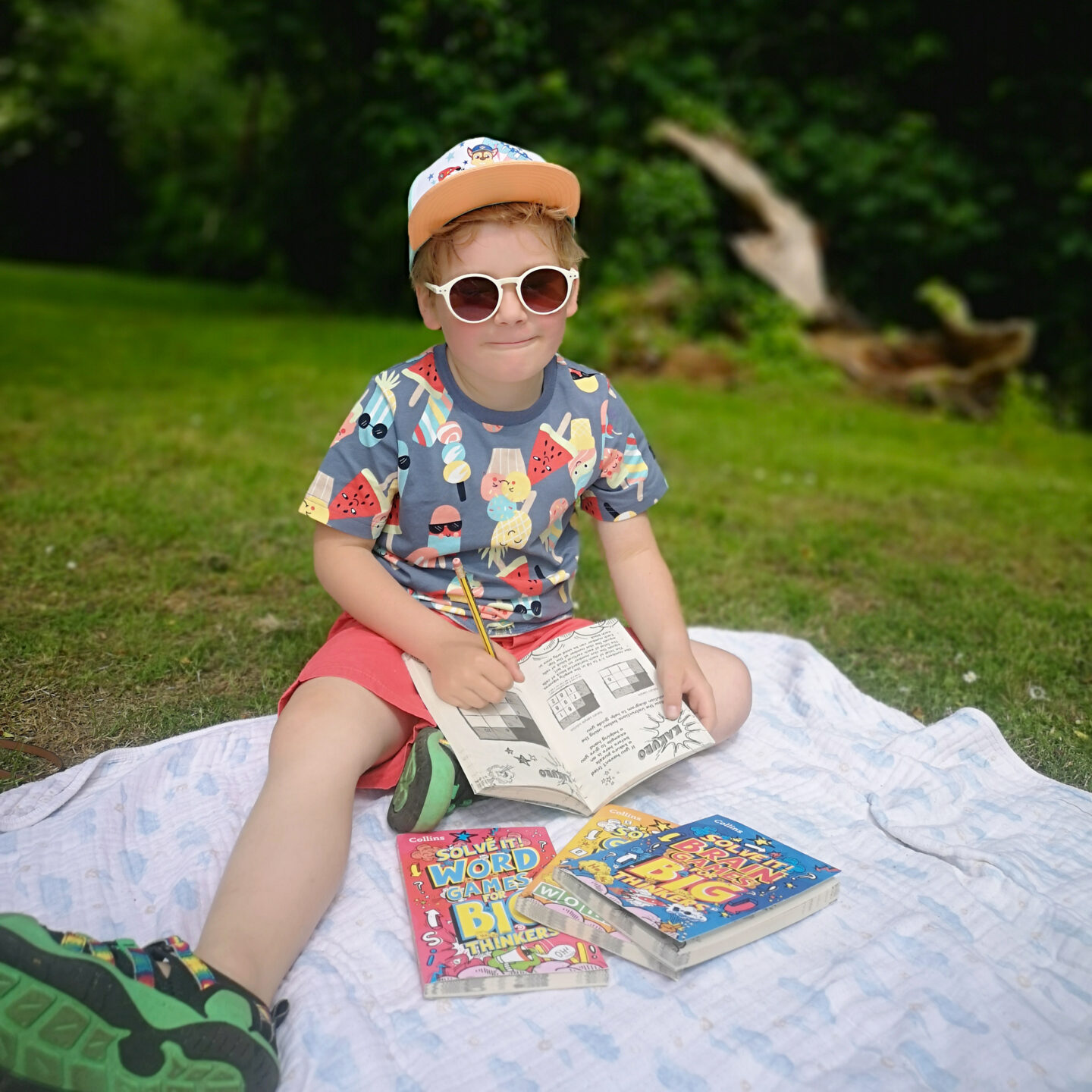
Brands like Noala are here to help and accessible to you, especially if you are not sure what to do. They offer free 10-minute calls to families needing advice and support to foster their children’s communication.
It can feel overwhelming within your parenting journey. So, having an expert along the way will definitely support you.
Communication skills, whatever your child’s level, are a long process that can always be improved with patience, determination, and a positive mindset.
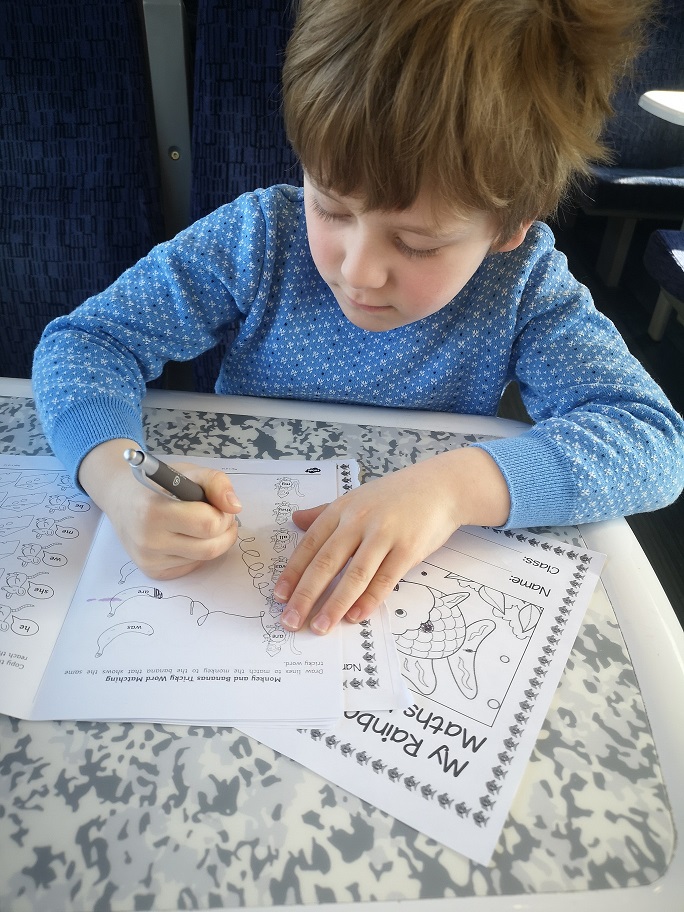
Daily routines and small actions like those I described in this post will always have an impact in the long term. So keep it up.
Also, remember that every child works at their own pace. So if you have any doubts, seek advice from experts such as Noala. They will have strategies in place that are specific to your child’s needs.
What did you do to help develop communication skills with your children? Did you teach them another language? If so, what really supported their learning?
Disclosure: This is a sponsored post in collaboration with Noala.
Great – wish I could speak more than 1 language!
I do think it is amazing how children pick up a second language so quickly!
Author
Yes their brain is amazing. I got guilty of switching more to English with Stanley over lockdown. So we are back to French now and he is picking up things so quickly!
My granddaughters are both bi lingual. They learnt Welsh in school and my younger grandaughter is particularly proficient in it. They learnt it from primary school age even though neither of their parents speak it
I am sure I read somewhere children can learn a new language easier when they are young. It is so important for their future because it opens up a world of career opportunities when they speak different languages too!
We are not a bilingual family, but I think it’s amazing how children can pick up two (or more!) languages so quickly! My daughter has a Ukrainian girl temporarily in her class who couldn’t speak a word of English when she arrived in July last year. She is now almost fluent!
So I speak Cantonese and it’s always been a wish for my children to speak Cantonese too. Sadly my son was speech delayed and the speech therapist said it did not help he was bilingual and told us to focus on one. Because my husband doesn’t speak Cantonese it only made sense for us to focus on English and since then he refuses to reply back to us in Chinese. He even says he doesn’t like speaking in Chinese. We’ve tried meeting up with other mums and children who speak it but they speak English amongst each other. When I put on Cantonese cartoons he would take the remote and change the video. It’s getting hard…
Author
Oh I am so sorry for you. It must be hard. Stanley had a period like that talking French. It was partly my fault as I switched to English during homeschooling. But we are doing it slowly again. He might not speak Cantonese but you can speak to him and it is still practise. One day he might change his mind and he will catch up quick because he has been brought up in this environment. Good luck! Never give up!
It’s amazing how quickly children can learn more than one language. When I was little my nan taught me some Italian, just by pointing things out on bus routes or walks. Unfortunately I lost her when I was 7 I lost my nan, and unfortunately the language skills too. it’s important to keep practicing at every opportunity.
My children have spoken a second language from early age because of family and grandparents. I think it’s so important to learn from an early age, as young children retain the languages much easier than when they are older
great article
Amazing how quick children pick up language skills – comprehensive read
Fab! I wish I could talk different languages….sadly I got a D at GCSE level in French
This is such a great resource, my 5yo daughter has just started to learn Mandarin
Author
Wow that’s amazing!
As a retired teacher I cannot stress enough to the importance of reading to and with a child for developing communication skills as well as for the sheer enjoyment of it. My children and I shared books until they were well into their teens. One of the delights of becoming a Nan was to read to and with my grandchildren. Sadly however none of them now read for pleasure. That seemed to stop when they finished primary school.
Author
I agree it is so important! Sadly, young people now just love new technologies too much. Stanley loves his tablet and there are some great apps out there to help with his learning etc. But you can’t replace books. I really hope he will be a bookworm like me when he is older 🙂
Aren’t children amazing the way they pick things up so easily
great tips for raising children bilingual
Such useful skills, I wish I could speak more languages.